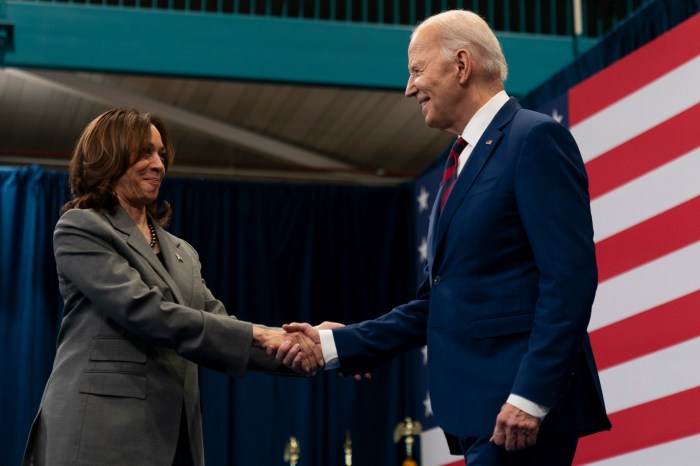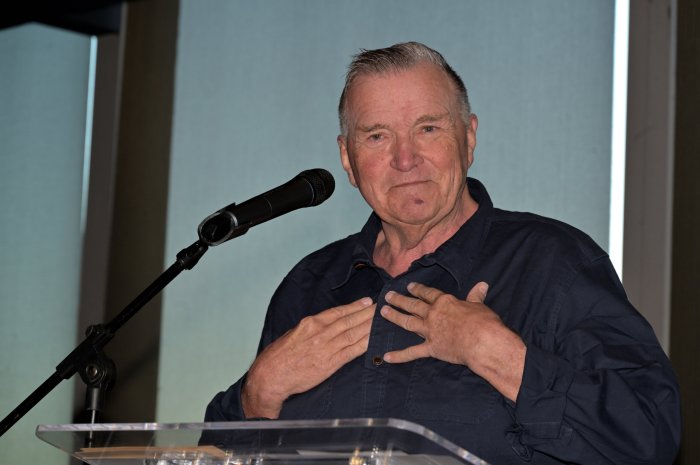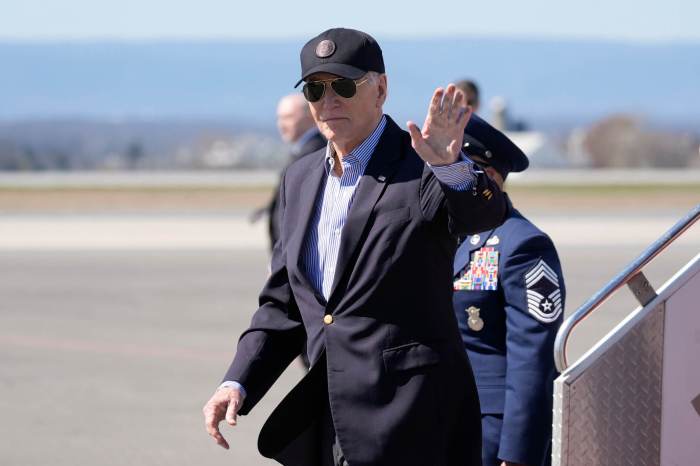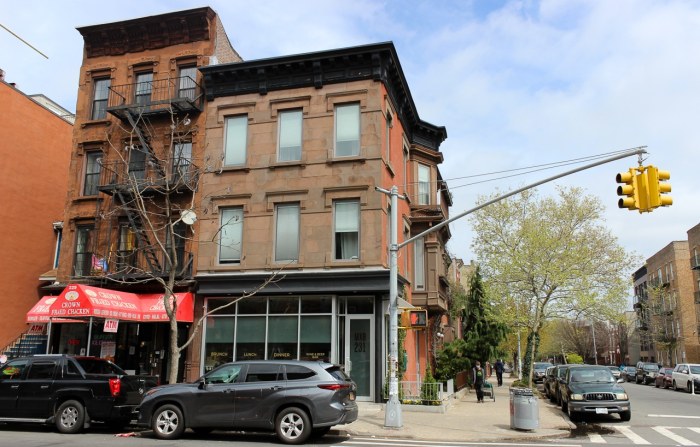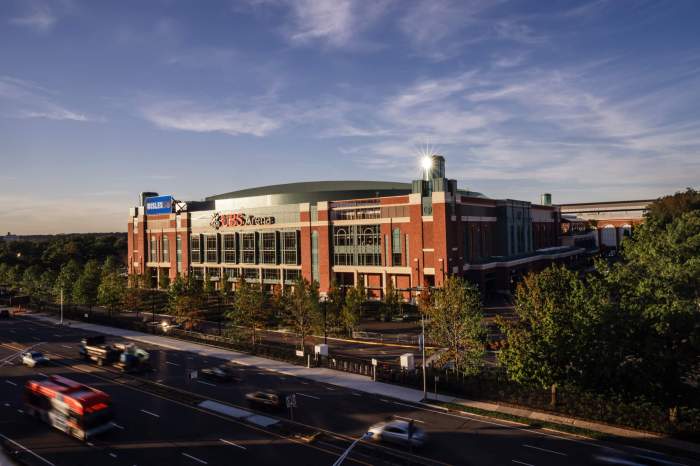The New York State Senate is fast-tracking a bill to override a law upheld by the federal courts that forbids worship services in New York City public schools.
While its fate is less certain in the Assembly, it has attracted some sponsors usually supportive of civil rights and liberties. And a resolution supporting the bill almost passed the New York City Council until out gay Councilman Daniel Dromm, a Jackson Heights Democrat, objected, sending it to committee.
In addition to concerns that worship in government buildings violates the Establishment Clause of the US Constitution, Dromm is alarmed that most of the churches meeting in the schools are anti-gay.
Speaker Christine Quinn, an out lesbian Chelsea Democrat, will not state a position on the resolution, which is also sponsored by Public Advocate Bill de Blasio and supported by Comptroller John Liu, both Democrats who usually hold reliably progressive views.
Mayor Michael Bloomberg and Schools Chancellor Dennis Walcott fought successfully in court to uphold existing law that permits religious groups to hold meetings, but not to conduct worship services or use school buildings on weekends as their churches.
The number of churches worshipping in the city’s 1,600 public schools is estimated between 60 and as high as 160, often for as little as $12 a day —a nominal cost that appeals to emerging churches in poor communities and that is being exploited by right-wing religions to engage in what they call “church planting” to vastly extend their reach.
In June, the US Court of Appeals for the Second Circuit in Manhattan upheld the constitutionality of the existing law prohibiting worship services in public schools. In December, the US Supreme Court refused to review that ruling.
The city will not allow any more worship services in school buildings after February 12, which is why city and state legislators representing communities with a large number of churches using school property are in a hurry to contravene the court’s ruling.
The language in the hastily drafted state bill is overbroad, say opponents. It forbids school administrators from regulating the use of their space in a way “that would result in the exclusion or limitation of speech, during non-school hours, even where students may be present, including speech that expresses religious conduct or viewpoints.”
“What does that mean?,” asked East Side Democratic Councilwoman Jessica Lappin in a written release. “It means the Department of Education wouldn’t be allowed to turn away any groups at all, religious or otherwise –– not even the Ku Klux Klan or a pornography club could be denied.”
At a packed Council Education Committee hearing on February 2, Jay Worona, general counsel to the New York State School Boards Association, testified, “Although the proposed legislative language is clearly not intended to require school districts throughout the state to permit individuals to secure access to school facilities after school hours for the purpose of promoting hateful, discriminatory messages, that is indeed a very real unintended consequence.”
Dromm wrote to Council colleagues, “I believe allowing churches that preach virulent homophobia in public schools violates not only the First Amendment’s Establishment Clause but also New York City law.”
Several students from the Bronx High School of Science testified against the resolution.
“If someone is excluded because of sexual orientation, it is a violation of the school’s administrative code,” said Diego Velasquez. “Everyone is supposed to feel welcome. No one in the school is above the administrative code,” including outside groups.
Bronx Science does not now have a church worshipping in its school, in part because the school is utilized by students engaging in extracurricular activities on Saturdays and Sundays.
But any empty space in the school could be requested by a church whenever classes are not in session under the new state bill. The religious groups using the schools as their churches are capitalizing on the lack of after-school and weekend activities available to students in schools serving poorer students.
Congregations using church space on an ongoing basis can deny other community organizations access to space on more ad hoc terms.
Democratic Councilman Fernando Cabrera, the chief sponsor of the resolution and senior pastor of New Life Outreach International in the Bronx, tried to refute the idea that these religious groups were engaging in a movement to “Occupy the Schools,” but Pastor Robert Hall of the Bronx Household of Faith, which lost the court case to stay in a school, asked by Dromm whether his goal was to have a church in every school, said, “We would like to see that.”
Cabrera led a march of 3,500 protesting the ban across the Brooklyn Bridge on January 29.
On his church’s website, Hall, responding to the court ruling against his church and to the passage of marriage equality in New York last year, wrote, “Both decisions refuse to recognize the authority of God, creator and sovereign of the universe, as the authority above the state.”
Jordan Lorence, the combative senior counsel for the Alliance Defense Fund that lost the Bronx case –– and is involved in a wide range of lawsuits challenging marriage equality and other gay rights advances –– insisted that of the top 50 school districts in the country, only New York prohibits worship services in schools.
“Nothing in the Constitution prohibits it,” he testified. “Can’t explain why the Supreme Court declined to hear the case.”
Out gay Councilman Jimmy Van Bramer, a Sunnyside Democrat, is a sponsor, but did not ask any questions at the hearing. He would not speak to Gay City News, but issued a statement via e-mail: “I am concerned about some of the testimony I heard and am going to continue to consider the legislation to determine if I can support it.”
Lower East Side Democratic Councilwoman Rosie Mendez, an out lesbian, is said to be opposed, but did not return a call seeking comment by press time.
Under current law and even under the new bill, groups that use the schools “shall be non-exclusive,” meaning they must be open to all. Councilmembers who are typically strong supporters of gay rights –– such as Education Chair Robert Jackson, an Upper Manhattan Democrat, and Fort Greene Democrat Letitia James –– pressed pastors who testified on whether they allowed LGBT people and others to attend.
Pastor Jack Roberts, also of Bronx Household of Faith, said, “Gay and lesbian people can come,” but not become members. “We don’t allow people who are not baptized or who have a lifestyle contrary to the word of God.”
Jonathan Willner, a Brooklyn teacher, testified, “I am outraged that [these religious groups] can use our schools to preach hatred. Any religious group must be required to eliminate anti-gay rhetoric and respect equality. To do any less would be discriminating.”
The bill in the Republican-led State Senate to keep churches in schools cleared the Education Committee with only the dissent of Senator Velmanette Montgomery, a Brooklyn Democrat, and is headed to the floor next week.
The Assembly bill mirrors it, but some members are trying to slow down the rush to judgment on it.
Out lesbian Assemblywoman Deborah Glick, a West Village Democrat, is strongly opposed to the bill.
“There are a number of members with concerns and a desire that it not fly off the shelf without a lot more scrutiny,” she said.
“I’m totally opposed to the bill,” said Assemblyman Dick Gottfried, a Chelsea Democrat. “There are often gray areas between what it is the free exercise of religion and what is the establishment of religion. Having a school used as a house of worship crosses the line and is not allowed.”
Gottfried said there has been no discussion of the bill in the majority Democratic Conference, “and I don’t think such a bill would move without a conference discussion.”
The 700-member New Frontier Church holds three worship services, conducted in Korean, every Sunday in PS 11 in Gottfried’s district. Pastor Inhyun Ryu testified that the congregation has made “structural improvements” to the school, improved the air conditioning, and donated computers to the students “but never left a donor ID on them.”
Pastor Stephen Leung of Ascension Church, which meets at PS101 in Forest Hills, said, “We don’t proselytize children and do not exclude anyone from our worship services.” If the city policy stands, “it is ideologically driven,” he argued. “Folks like us don’t feel welcome anymore.”
Matthew Stewart, a parent of children in PS 6 on the Upper East Side, said he investigated the Morning Star Church that meets there.
“The church dominates the facility,” he said. “Part of the stage was used for their storage,” something that is not supposed to be allowed. “Teachers had to ask them not to use school supplies,” he said, “and I saw one pastor praying over children’s pictures on the walls of the school.”
Stewart said he was “outraged” that “the blending led my child to develop the false impression that school and church are blended.”
New York Civil Liberties Union executive director Donna Lieberman said, “The NYCLU champions the right of all New Yorkers to worship, or not, as they choose. But turning our public schools into churches every Sunday undermines the core American principle of separation of church and state. Our public schools serve children of all faiths equally. Converting our schools into churches sends a message to the community –– and to children –– that the government favors Christian churches. It creates a climate of discrimination, intolerance, and animosity that has no place in public schools.”
The NYCLU noted that since schools are most often empty only on Sundays, the policy favors the Christian faith.
“The church that gets to pray in school every week is likely to be viewed as the favorite by the kids who go to the school and the community at large,” Lieberman said. “It gives kids the impression that one religious group is favored over others.”
She blasted the bill as requiring schools “to subsidize churches” and as “devastating for the separation of church and state.”
Marci Hamilton, a former clerk for US Supreme Court Justice Sandra Day O’Connor and professor of law at Cardozo School of Law, specializes in church/ state relations and constitutional law. She testified that the Second Circuit ruled that the schools “could not and should not” be open to houses of worship.
“If the Establishment Clause stands for anything, it must stand for the notion that it is not suitable for public schools to be churches,” she said.
Hamilton added, “Bronx Household of Faith is not open to the general public. Its exclusionary practices, while fine for a religious organization occupying its own rented or purchased space, are intolerable in a public school.”
Jackson called Hamilton’s testimony her “opinion” and the “opinion” of the Second Circuit.
“These are the facts,” Hamilton said, telling Jackson the city was “bound” by the Second Circuit ruling.
Cabrera turned the question into one with racial dimensions, deriding the panel of Lieberman, Hamilton, and the NYCLU’s Arthur Eisenberg for not looking like the people in his community and being “rich elitists” infringing on the rights of poor people of color, a charge they did not respond to.
De Blasio, a sponsor of the resolution, said in a statement, “Churches are part of the fabric of our communities –– these groups provide so much for our families and our neighborhoods. Mayor Bloomberg has the power to work with these religious leaders and stop these evictions by providing every organization, including religious organizations, an equal opportunity to rent city facilities. If other cities are able to find a reasonable compromise on this issue, New York must be able to do the same. I do not want to see New Yorkers lose the church families they’ve come to rely on and contribute to in so many ways.”
Asked whether he had concerns about the constitutional arguments raised at the hearing, de Blasio said, via email, “There is indeed a line between church and state, but common sense and fairness dictate that the longstanding practice of allowing these institutions to rent space from the city — as thousands of other organizations do—is hardly a transgressive one.”
Dromm, however, told Gay City News, “I am frustrated that sometimes my colleagues don’t seem to take these churches’ virulent homophobia as seriously as it should be taken. It is an outrage that progressive people aren’t as outraged as is necessary. These issues are at the core of determining whether you’re a progressive.”
Governor Andrew Cuomo’s office did not respond to a request for comment on his view of the issue.
Allen Roskoff, president of the LGBT Jim Owles Liberal Democratic Club, said “the gay community is furious” over the bill, and he confronted Councilmembers Jackson and James over their support for the resolution.
“Tish said these people take care of people with AIDS, but I said it is not right for government to give them places to pray,” he said.
There are a lot of politics at play here. The supporters of churches in schools include de Blasio who is running for mayor, James seeking to be the city public advocate, and Jackson who wants to be Manhattan borough president.
Two of the opponents of the measure are Lappin and Julie Menin, chair of Community Board 1, both of whom also seek to be borough president.



























